Advanced electromyography testing that pinpoints exactly what’s causing your numbness, tingling, or muscle weakness.
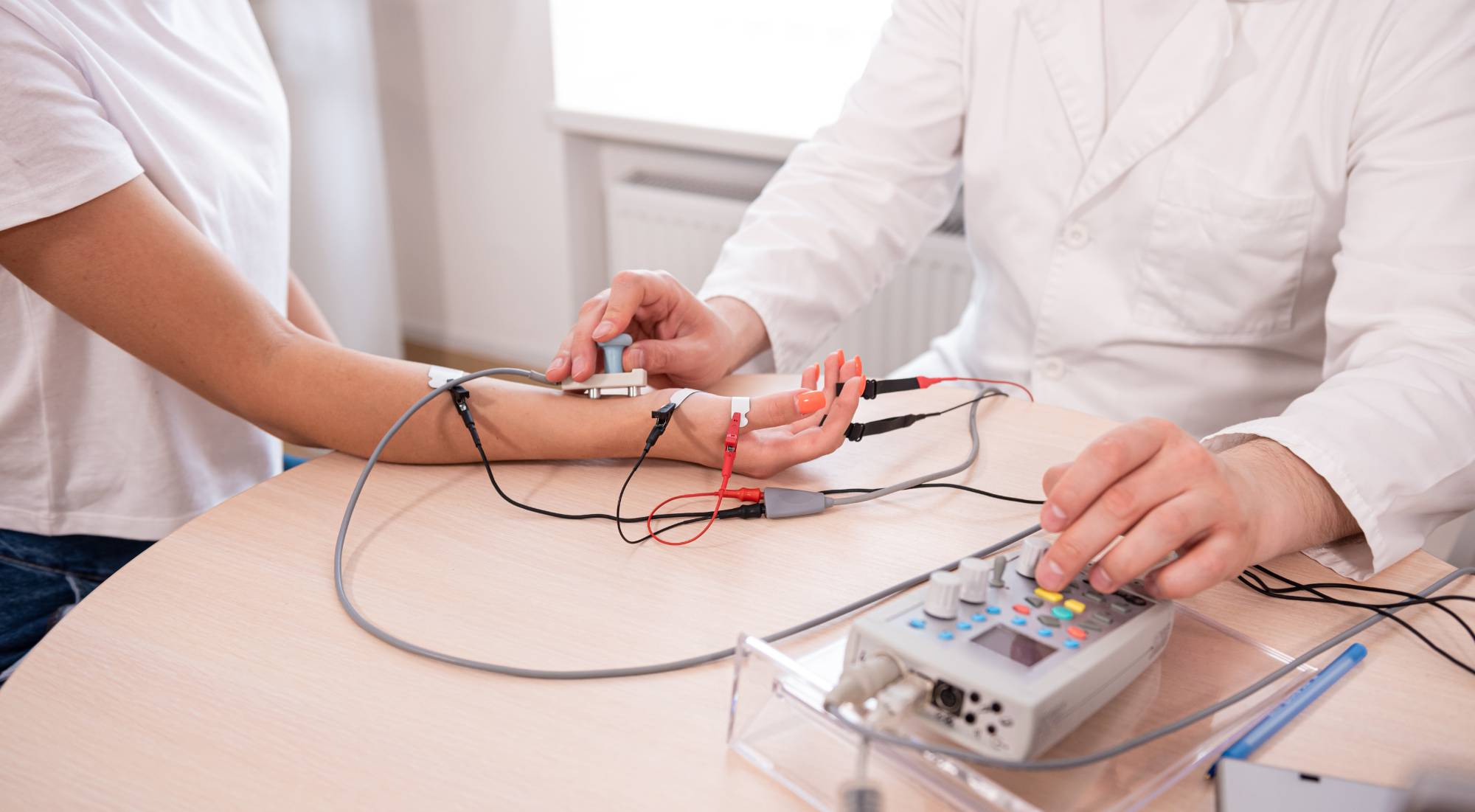
Reviews
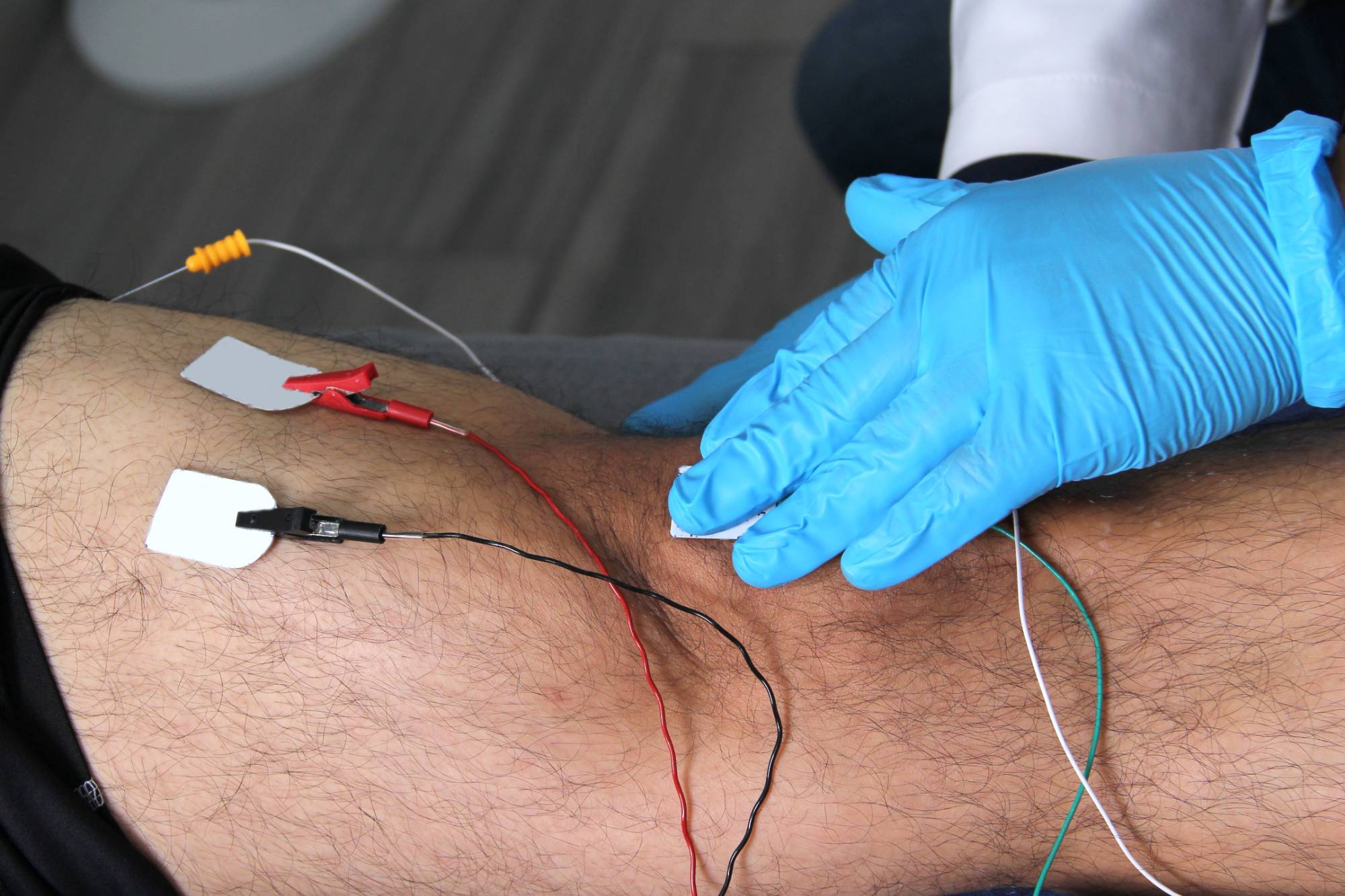
You’ve been dealing with strange sensations, unexplained weakness, or nagging pain that nobody seems to understand. EMG testing changes that by measuring the electrical activity in your muscles and nerves to identify exactly where the problem lies.
This isn’t another round of guessing or generic treatments. Electromyography testing gives you concrete answers about nerve function, muscle response, and the specific areas causing your symptoms.
When you know what’s actually happening in your body, you can move forward with targeted treatment instead of wondering if your symptoms will get worse. The test results become your roadmap to getting better.
NY Spine Medicine has been providing comprehensive diagnostic services to King Heights and surrounding Florida communities for years. We focus specifically on spine and nerve conditions, which means you’re working with specialists who understand the complexities of nerve function.
We use advanced EMG and nerve conduction study equipment to ensure accurate readings every time. You’re not just getting a test – you’re getting an expert interpretation of what those results mean for your specific situation.
Our focused approach to nerve diagnostics means you get clear answers from doctors who have seen thousands of similar cases and know how to guide you toward effective treatment.
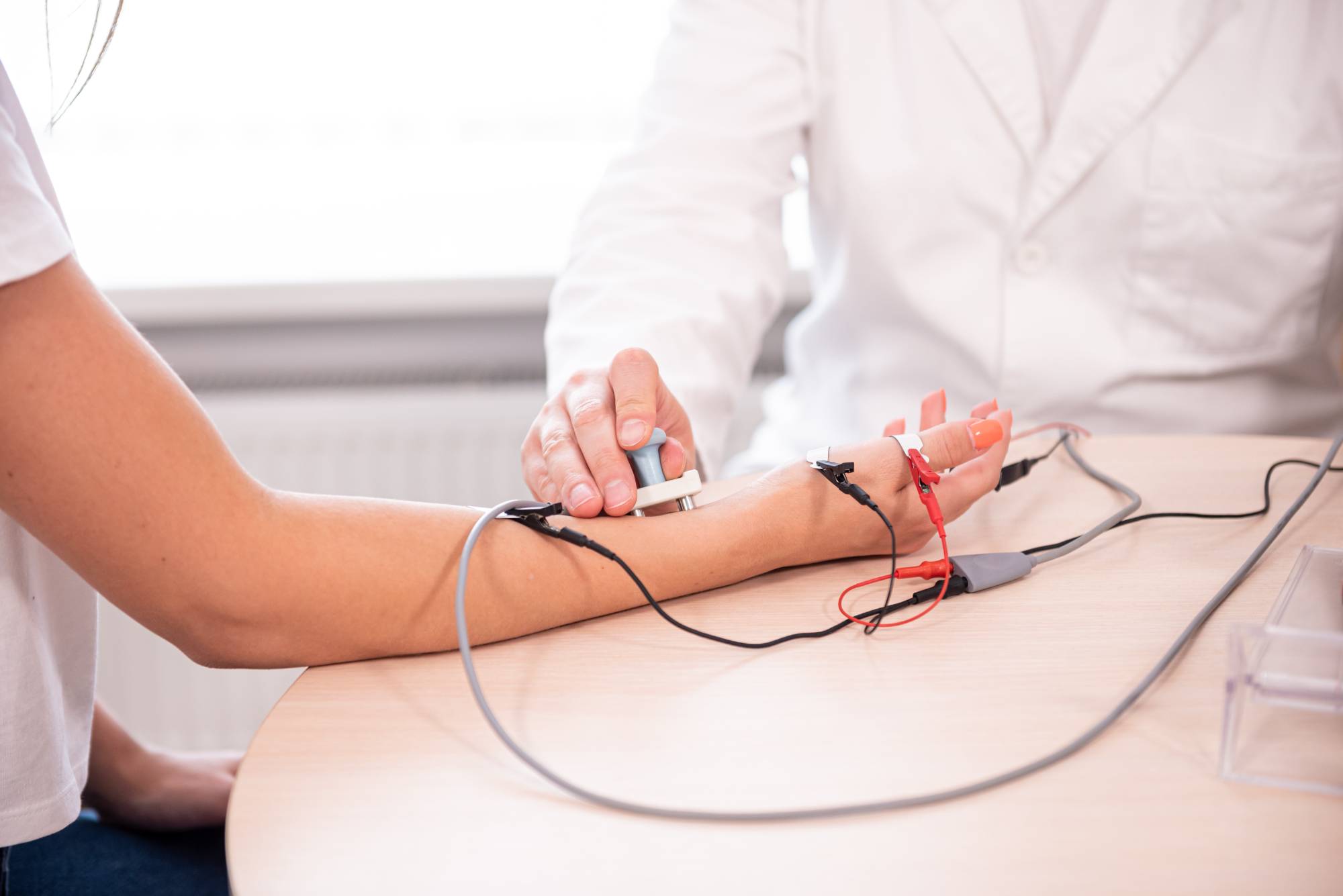
Your EMG testing appointment typically combines electromyography with nerve conduction studies for the most complete picture of your nerve function. The process starts with nerve conduction testing, where small electrical pulses measure how well signals travel through your nerves.
Next comes the EMG portion, where thin needles are inserted into specific muscles to record electrical activity. This sounds more uncomfortable than it actually is – most patients describe it as similar to getting blood drawn, with brief moments of mild discomfort.
The entire process usually takes 30-60 minutes depending on which areas need testing. You’ll get your results immediately, along with a clear explanation of what the findings mean and how they point toward your best treatment options. No waiting weeks to understand what’s happening with your body.
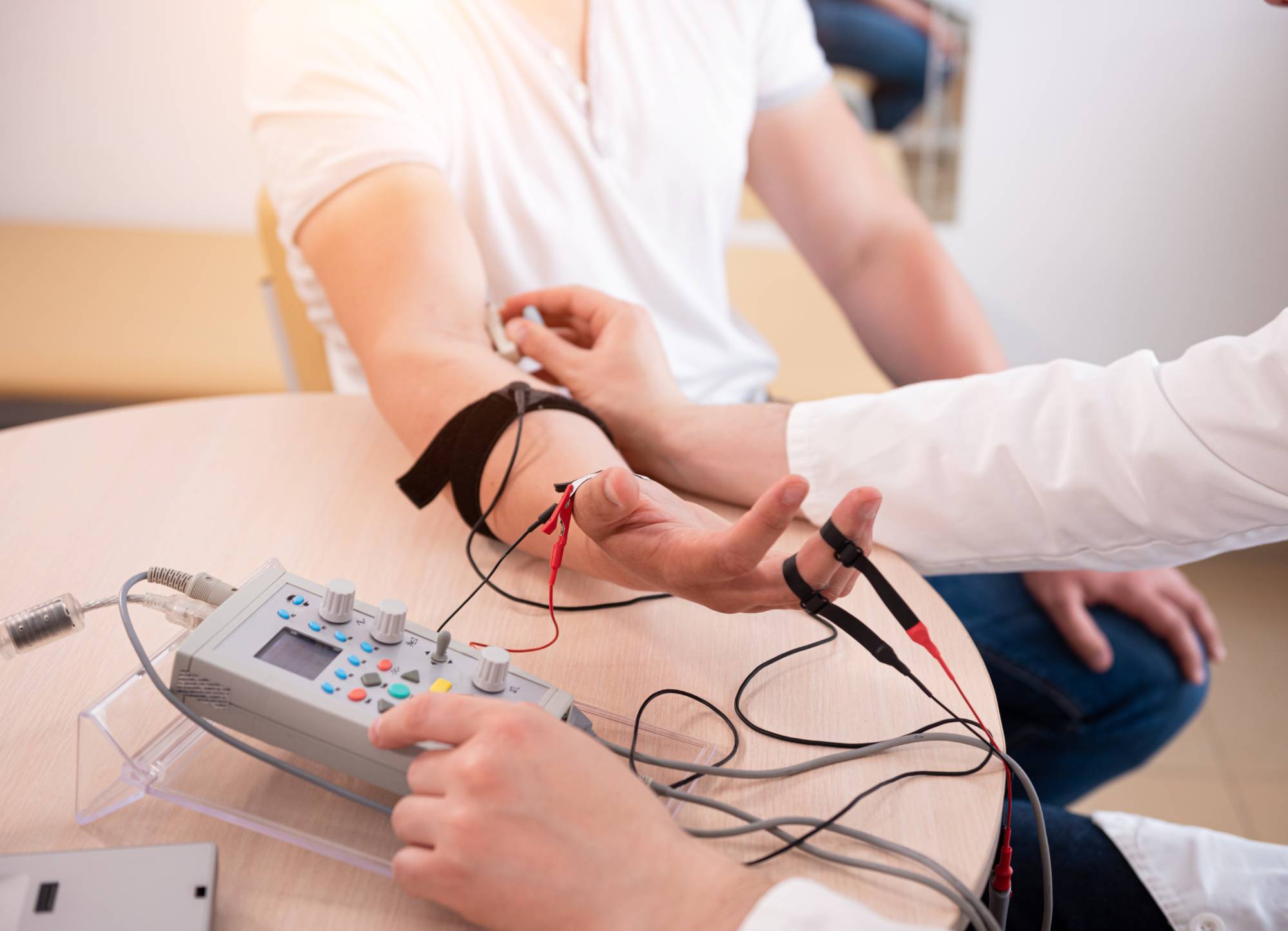
Ready to get started?
Your EMG testing includes both electromyography and nerve conduction studies because these tests work together to give you the full picture. Nerve conduction studies show how well electrical signals move through your nerves, while EMG testing reveals how your muscles respond to those signals.
This combination helps identify conditions like carpal tunnel syndrome, pinched nerves, muscle disorders, peripheral neuropathy, and radiculopathy. The testing can distinguish between nerve damage and muscle problems, which completely changes your treatment approach.
You’ll receive detailed results that explain not just what’s wrong, but how severe the condition is and whether it’s getting worse. This information becomes the foundation for creating a treatment plan that actually addresses your specific type of nerve or muscle dysfunction.
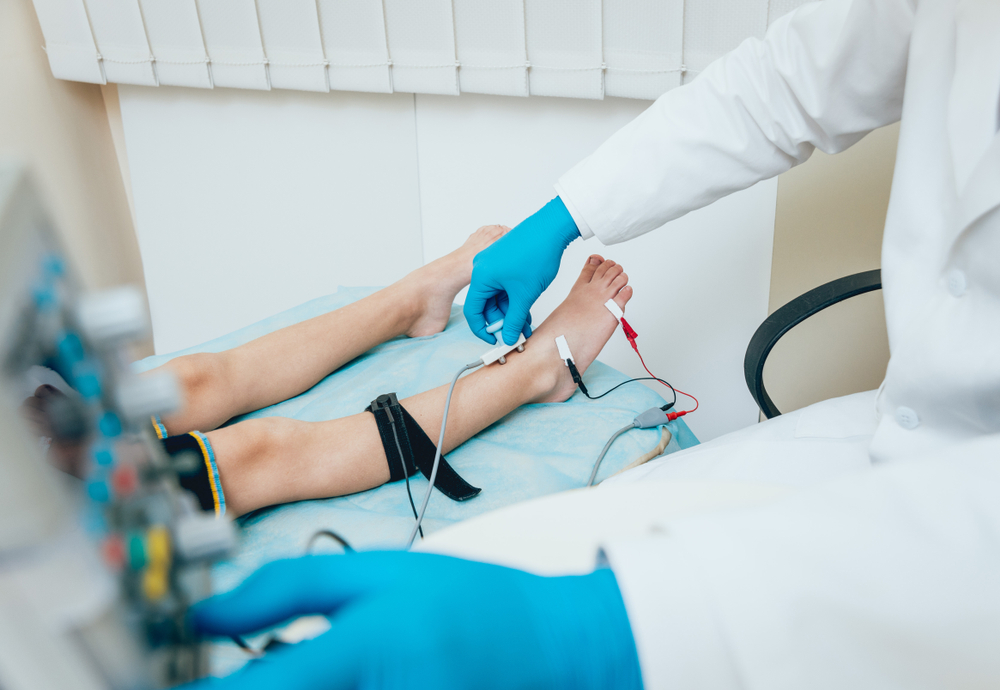
New York:
Florida:
Support